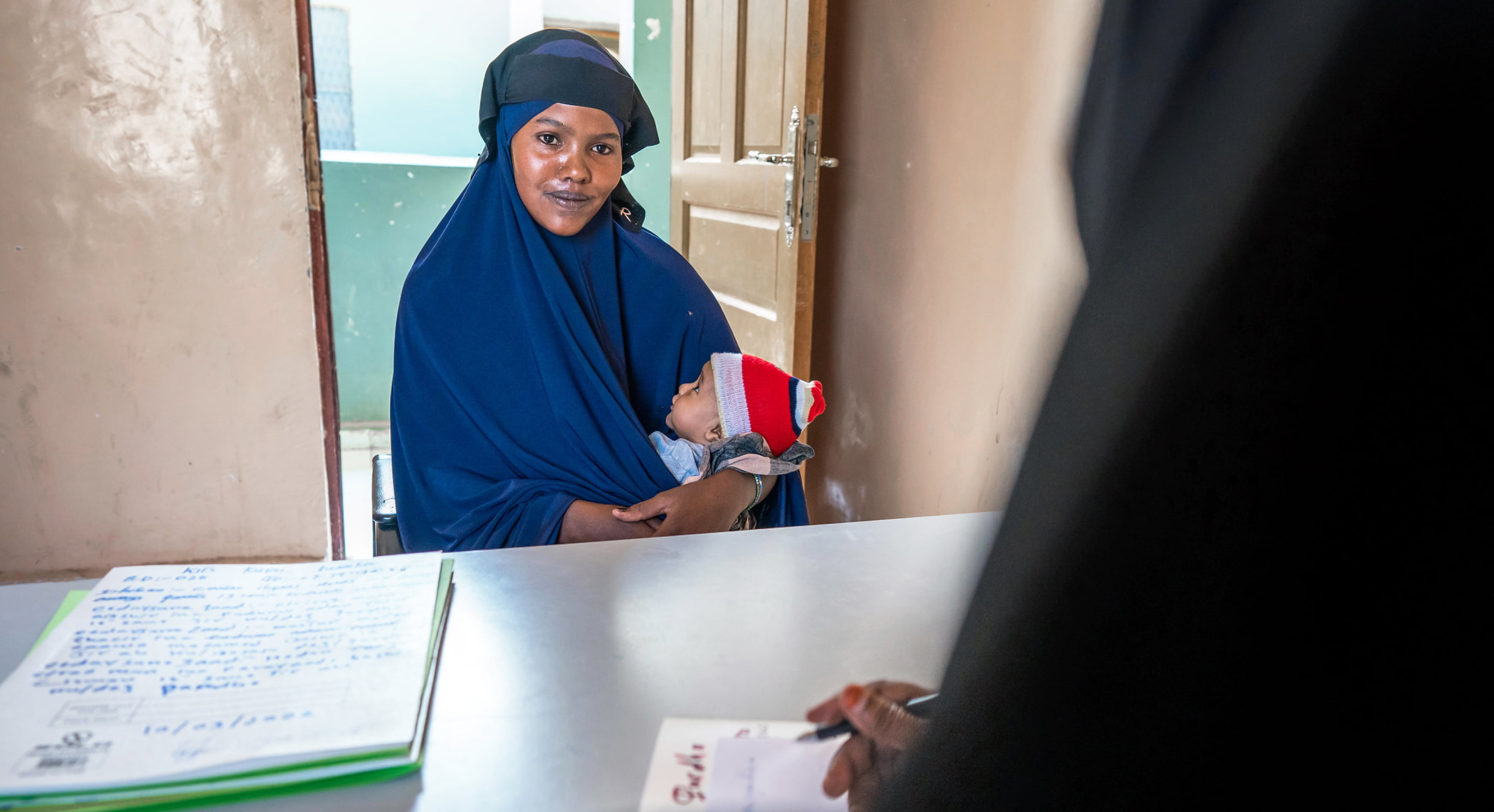Somalia

Countries & Territories
In Somalia, UNDP supported the development of a new four-year phase of a Joint Justice and Corrections Programme (JJCP) that will be implemented in 2023. The first phase of the programme was completed in 2022. To ensure the inclusive design process and to maximize the application of lessons learned and best practices of the previous project, UNDP convened national and international stakeholders, including through partnerships established under the framework of the UN Global Focal Point for the Rule of Law (GFP). At the national level, the Federal Ministry of Justice has remained UNDP’s key partner.
The main objective of the JJCP rollout is to support the implementation of the rule of law reforms in Somalia through people-centred approaches and by engaging communities to ensure that their justice and security needs shape the reform agenda. The JJCP will focus on reaching the most vulnerable and with least access to justice, supporting the fulfillment of their rights through generative dialogues that involve state and non-state rule of law actors and integrative justice solutions.
lessons learned
Leave No One Behind
As was highlighted during the design stage, one of the weaknesses of the previous phase was an excessive focus on top-down interventions at the federal level and the lack of political engagement. To address this, a clearer emphasis on the bottom-up approaches and the demands of each federal member state (FMS) has been made foundational for the second phase of the JJCP in Somalia. Also, systemic cooperation with the UN Assistance Mission in Somalia (UNSOM) will bring in the political lens and support in the advancement of stabilization, peace, reconciliation and justice programming. Intrinsic to the people-centred approach is an understanding that Somalia has relied, and will for the foreseeable future largely rely, on forms of justice and dispute resolution outside of the formal justice system, and that effective programming needs to engage with this hybridity.
Partnerships
National and district stakeholders have been involved at the design stage of the programme to promote national ownership. In addition to the Federal Ministry of Justice and the Supreme Court, UNDP is expected to work closely with the FMS Judiciary, as well as with the local district councils or the peace committees in fragile areas. The JJCP will also seek to establish partnerships with local universities to support capacity development and integration of justice modules in their curriculum.
The GFP framework will allow leveraging partnerships with the UN agencies, including with the UN High Commissioner for Refugees (UNHCR) on people-centred justice solutions for internally displaced persons (IDPs) and with the other UN agencies to facilitate complementarity with other initiatives on police reforms, justice and corrections. To address the challenges of exclusion in both formal and informal justice sectors, the JJCP will prioritize support for women-specific justice solutions and partner with UN Women to undertake action-oriented research and analysis for gender-responsive initiatives.

A woman reports a crime at the UNDP-supported police station in Qardho, Puntland, Somalia
Integrated response
A strategic workshop, “Pathways to Enhancing the Rule of Law in Somalia”, hosted by UN Mission in Somalia (UNSOM) and UNDP in Nairobi, was a key platform for the programme’s development. The workshop enabled better international alignment on the strategic direction for the justice sector, including the need for more politically aware programming, improved coordination and advocacy, adoption of new approaches emphasizing people-centred services, and the need to recognize and integrate plural justice pathways in programming.
To assess the situation in the country, UNDP supported the development of a Political Economy Analysis research piece commissioned to provide insights and recommendations on the future of justice programming. The analysis emphasizes the need for a longer-term perspective on change, deprioritizing major investment in justice institutions in favour of fostering dialogue and coordination, both with core decision-makers and beyond, including Islamic leaders and the private sector. The research reiterated the need to focus on local initiatives to build public appreciation of a fair, independent, affordable and accessible set of mechanisms in dispute resolution.
While developing the JJCP new phase, UNDP in Somalia implemented tailored interventions in previously underserved regions. UNDP continued to provide access to alternative justice services through supporting Alternative Dispute Resolution (ADR) Centres in various locations throughout the FMS, managed by respective Ministries of Justice.
UNDP also supported various avenues for women to access justice. Over 1,600 women benefited from alternative dispute resolution mechanisms, legal aid and mobile court services in 2022. One-stop sexual violence referral centres provided medical, legal and psycho-social support to 296 survivors of sexual and gender-based violence, including 259 women.
At national level, UNDP has progressed in promoting tolerance and dialogue by supporting the expansion of networks of influential and moderate religious leaders in 16 locations in Banadir and the FMS. The network promotes a peaceful and tolerant message of Islam and has engaged in the debates on 167 cases with extremist actors to counter and debunk violent religious narratives.

results
- A new four-year phase of the Joint Justice and Corrections Programme (JJCP) was developed through an inclusive design process supported by UNDP; implementation will start in 2023.
- To support better alignment of the strategic direction for the justice sector and politically informed programming in Somalia, a strategic workshop “Pathways to Enhancing the Rule of Law in Somalia” was organized by UNDP and UNSOM, in addition to a Political Economy Analysis developed with support of UNDP.
- Over 1,600 women benefitted from alternative dispute resolution mechanisms, legal aid and mobile court services in 2022. Medical, legal and psychosocial support was provided to 296 survivors of sexual and gender-based violence, including 259 women.

